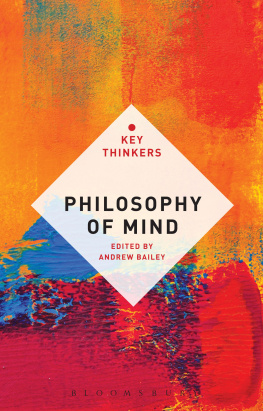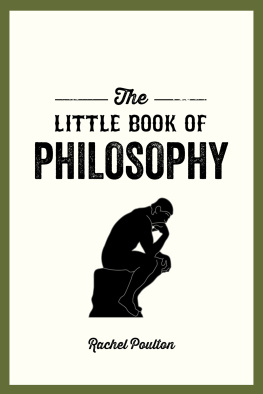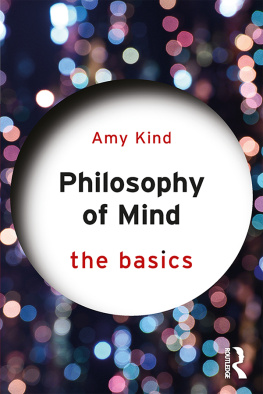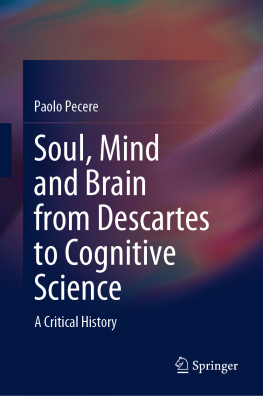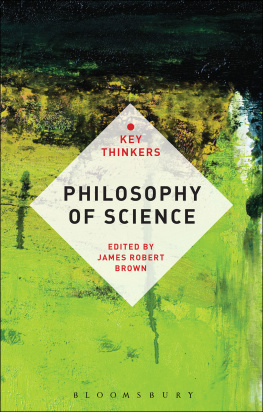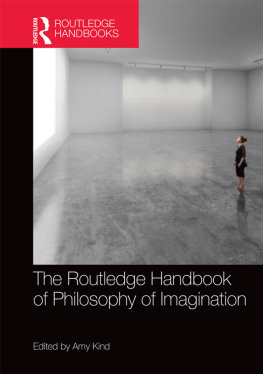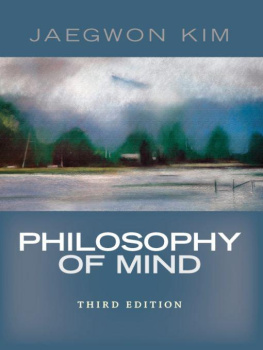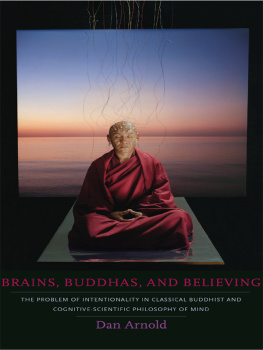Bailey - Philosophy of mind : the key thinkers
Here you can read online Bailey - Philosophy of mind : the key thinkers full text of the book (entire story) in english for free. Download pdf and epub, get meaning, cover and reviews about this ebook. year: 2014, publisher: Bloomsbury Academic, genre: Religion. Description of the work, (preface) as well as reviews are available. Best literature library LitArk.com created for fans of good reading and offers a wide selection of genres:
Romance novel
Science fiction
Adventure
Detective
Science
History
Home and family
Prose
Art
Politics
Computer
Non-fiction
Religion
Business
Children
Humor
Choose a favorite category and find really read worthwhile books. Enjoy immersion in the world of imagination, feel the emotions of the characters or learn something new for yourself, make an fascinating discovery.
Philosophy of mind : the key thinkers: summary, description and annotation
We offer to read an annotation, description, summary or preface (depends on what the author of the book "Philosophy of mind : the key thinkers" wrote himself). If you haven't found the necessary information about the book — write in the comments, we will try to find it.
Exploring what great philosophers have written about the nature of thought and consciousness Philosophy of Mind: The Key Thinkers offers a comprehensive overview of this fascinating field. Thirteen specially commissioned essays, written by leading experts, introduce and explore the contributions of those philosophers who have shaped the subject and the central issues and arguments therein. The modern debate about the mind was shaped by Descartes in the seventeenth century, and then reshaped in the mid-twentieth century, and since, by exciting developments in science and philosophy. This book concentrates on the development of philosophical views on the mind since Descartes, offering coverage of the leading thinkers in the field including Husserl, Ryle, Lewis, Putnam, Fodor, Davidson, Dennett and the Churchlands. Crucially the book demonstrates how the ideas and arguments of these key thinkers have contributed to our understanding of the relationship between mind and brain. Ideal for undergraduate students, the book lays the necessary foundations for a complete and thorough understanding of this fascinating subject-- Read more...
Abstract: Exploring what great philosophers have written about the nature of thought and consciousness Philosophy of Mind: The Key Thinkers offers a comprehensive overview of this fascinating field. Thirteen specially commissioned essays, written by leading experts, introduce and explore the contributions of those philosophers who have shaped the subject and the central issues and arguments therein. The modern debate about the mind was shaped by Descartes in the seventeenth century, and then reshaped in the mid-twentieth century, and since, by exciting developments in science and philosophy. This book concentrates on the development of philosophical views on the mind since Descartes, offering coverage of the leading thinkers in the field including Husserl, Ryle, Lewis, Putnam, Fodor, Davidson, Dennett and the Churchlands. Crucially the book demonstrates how the ideas and arguments of these key thinkers have contributed to our understanding of the relationship between mind and brain. Ideal for undergraduate students, the book lays the necessary foundations for a complete and thorough understanding of this fascinating subject-- Read more...
Bailey: author's other books
Who wrote Philosophy of mind : the key thinkers? Find out the surname, the name of the author of the book and a list of all author's works by series.

